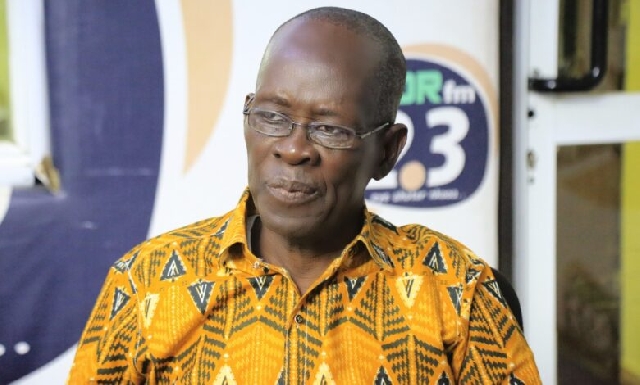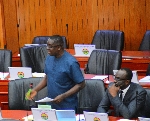GFL justifies 2026 9 precent base pay acceptance
 Abraham Koomson, General Secretary of GFL
Abraham Koomson, General Secretary of GFL
Mr. Abraham Koomson, Secretary General of the Ghana Federation of Labour (GFL), has stated that Organised Labour agreed to a 9% Base Pay increase for 2026 in the interest of national economic stability, workers’ welfare, and broader social progress.
The adjustment, which also raises the National Daily Minimum Wage from GHS19.97 to GHS21.77, is part of ongoing efforts to support Ghana’s economic recovery following a period of financial difficulty.
In an interview with Ahotor FM, Mr. Koomson emphasised that the negotiation process strictly followed legal frameworks, including the Public Financial Management Act, 2016 (Act 921) and the Labour Act, 2003 (Act 651).
“In determining wage adjustments, regulations are adhered to in compliance with the law,” he stated.
“All public sector salary negotiations must be concluded by the end of April each year, as stipulated by law.”
Mr. Koomson also criticised the previous administration for what he described as “reckless economic management,” citing high fuel prices, currency depreciation, inflation, and the adverse impact of the Domestic Debt Exchange Programme.
He further accused the former government of failing to negotiate the 2024 Base Pay on time, creating complications for the current administration and leaving Organised Labour in a difficult position.
Despite these challenges, Mr. Koomson revealed that Organised Labour successfully engaged the government in February 2025, leading to a 10% base pay adjustment for that year.
Shortly after, negotiations began for the 2026 Base Pay, guided by fairness and good faith.
He also highlighted government assurances to address outstanding issues, including the payment of salary arrears, the regularisation of approximately 150,000 health and education professionals, and the removal of nuisance taxes affecting the private sector.
Mr. Koomson added that Organised Labour will continue to monitor the performance of the cedi against major currencies, as exchange rate volatility directly affects workers' living standards.
“We have agreed to the 9% increment to support economic growth in the interest of workers and society as a whole,” he concluded.
“We remain committed to engaging government on emerging issues without waiting for the next negotiation cycle.”
Source: Classfmonline.com/Cecil Mensah
Trending Business

Mahama commits $500m to expand oil palm as TCDA targets $12b export boost
01:17
Economist urges African nations to shift reserves from dollar assets to gold
01:03
GOLDBOD reminds licensees to submit monthly transaction reports
18:37
Stanbic Bank Ghana leads USD 205 million financing deal for Engineers & Planners
15:50
GIPC welcomes extension of Jubilee and TEN petroleum agreements to 2040
15:38
Energy Commission tightens oversight on electrical cable market
11:54
GFZA CEO leads management team on working visit to Bright Industrial Park Enterprises in Afienya
10:36
Gov't overhauls gold acquisition framework;Goldbod to lead new reserve strategy
07:25
National Homeownership Fund to host 2026 Homeownership Fair in Accra
06:53
Why rebrand Bawumia’s G-4-R policy and claim it is new? – Gideon Boako questions gov’t's motive
06:36




